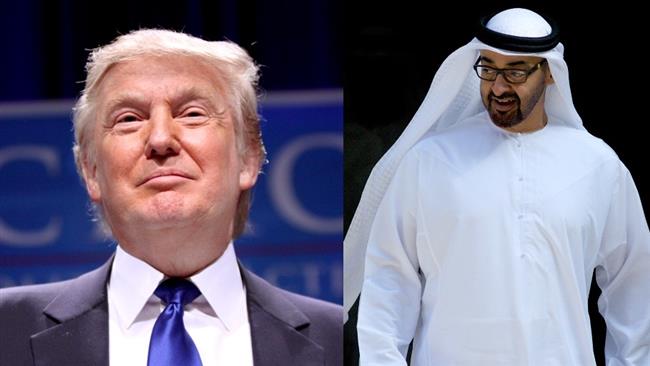
RNA - American, European and Arab officials told The Washington Post that the UAE agreed to broker the meeting in the Seychelles islands in the Indian Ocean in an attempt to persuade Moscow to reduce its close ties with Iran. The report was published on Monday.
In this regard, the crown prince of Abu Dhabi, Sheikh Mohammed bin Zayed al-Nahyan, secretly visited New York in December of last year, said the officials, speaking on condition of anonymity.
He held meetings with Trump’s former national security adviser, Michael Flynn, his son-in-law Jared Kushner, and White House chief strategist Steve Bannon.
Zayed and his brother, the UAE’s national security adviser, discussed exploring ways to get Moscow to break ranks with the Islamic Republic.
Zayed held at least two meetings with the Russian president in 2016 and tried to convince him to work closely with the UAE and Saudi Arabia, and curtail relationship with Iran, according to the officials.
Current and former officials said both the Trump administration and the UAE appear to be preoccupied with Iran and its growing influence in the region.
A former intelligence official who met with Trump transition officials said, “Separating Russia from Iran was a common theme.”
“It didn’t seem very well thought out. It seemed a little premature,” he added.
Michael McFaul, former US ambassador to Russia, said he also discussed with Trump officials the prospects of driving a wedge between Moscow and Tehran.
“When I would hear this, I would think, ‘Yeah that’s great for you guys, but why would Putin ever do that?’ ” McFaul said.
“There is no interest in Russia ever doing that. They have a long relationship with Iran. They’re allied with Iran in fighting in Syria. They sell weapons to Iran. Iran is an important strategic partner for Russia in the Middle East,” he added.
Trump has spoken in favor of establishing close ties with Russia, but has issued several statements against Iran, accusing it of sponsoring terrorism in the region.
During his presidential campaign, Trump had promised to repeal the landmark nuclear deal between Iran and six major powers, which he called a "disaster.”
Just days after his inauguration on January 20, the Trump administration implemented a new round of sanctions against Iran, violating the terms of the nuclear accord.
Meanwhile, the Trump administration reportedly also considered designating the Iranian Revolution Guard Corps (IRGC) as a terrorist organization, but the US State and Defense Departments warned him against any such move.
According to observers, Saudi Arabia, the UAE, and Israel, which are considered main sponsors of terrorism in the Middle East, particularly in Iraq, Yemen and Syria, are pushing the Trump administration to act against the IRGC, an organization that has frustrated their designs on these countries.
847/940